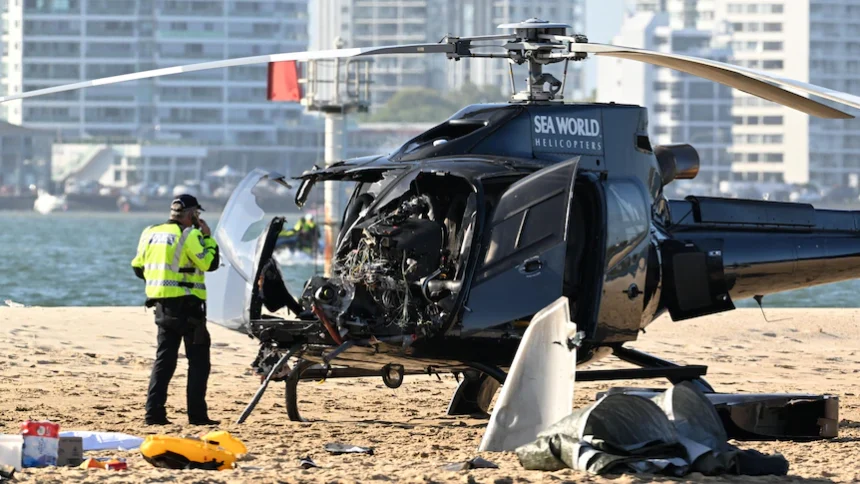An interim report into last year’s fatal Sea World helicopter crash on the Gold Coast has found the pilot killed in the disaster tested positive for traces of cocaine.
Key points:
- An interim report finds there were traces of cocaine in Ashley Jenkinson’s system after he died in the crash
- It found it was unlikely to have affected his motor skills
- The ATSB’s final report on the crash is expected to be delivered mid-2024
Sea World Helicopters chief pilot Ashley Jenkinson, New South Wales woman Vanessa Tadros and UK couple Diane and Ron Hughes died when the two choppers crashed into each other as one took off and the other came into land.
Three passengers — including two children — were also critically injured.
The Australian Transport Safety Bureau (ATSB) has been investigating for the past year and has interviewed key witnesses, examined both helicopters and reviewed other evidence such as flight tracking information.
Chief Commissioner Angus Mitchell said a toxicology report for Mr. Jenkinson had returned a positive result for low levels of cocaine metabolites.
“It is unlikely there would have been impairment of the pilot’s psychomotor skills.”







